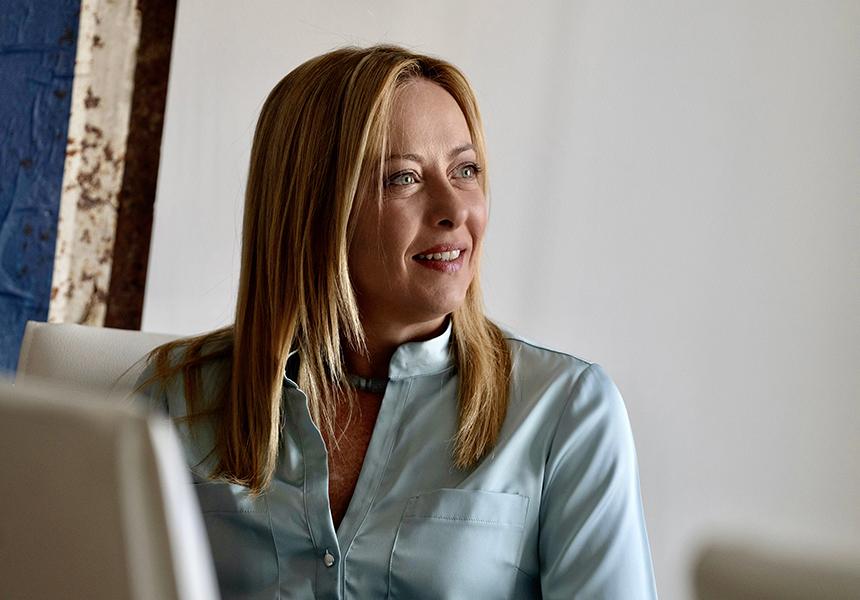President Meloni’s address at the third EU-CELAC summit
Tuesday, 18 July 2023

Thank you, Charles,
my thanks for this initiative, which is being held again after several years, at a time when there is a great need for dialogue, a need for an approach to discussions that is as pragmatic as possible and not ideological, cooperative and not paternalistic.
Dialogue is inevitably easier when the nations involved are linked by common cultural roots and solid commercial relations, despite there being an entire ocean between them, and I believe this is a very important occasion because, despite our ties, we have not always managed to move forward together as we could have. This is therefore also an opportunity to ask ourselves what hasn’t worked and what can work better.
I am well aware that many believe that, in the past, Europe often failed to recognise that the world’s problems were also its own problems, which is perhaps why our actions in the past were less decisive than they could have been.
We lived in a world in which we were clearly convinced we could save ourselves, alone. Then two shocks came along, with the pandemic crisis and Russia’s aggression against Ukraine, and we realised that was not the case, because we are living in a world that is too interconnected. In such an interconnected world, every shock produces a domino effect of consequences for each of us, with a particular detail being that that domino effect of consequences has a stronger impact on the most exposed nations and developing countries. We can see this very well with the conflict in Ukraine, where I believe the Russian invasion is clearly an act above all against the most vulnerable countries.
I have heard many speak about peace here. I think, however, that we must give words their proper meaning: the word ‘peace’ cannot be confused with the word ‘invasion’ because peace and invasion are two very different concepts; we must be frank on this. Those who may believe they can confuse these two words do not realise that a world in which international law no longer exists, a world in which those with greater military might can freely invade their neighbours, would never be a peaceful world. It would simply be a world in which the law of the strongest reigns and, yes, this may well be in the interest of the strongest, but it is certainly not in the interest of all the rest. The most vulnerable countries would be in danger and so I not only believe that, as Krišjānis said, the war in Ukraine is a new colonial war, but I also think it is a war against the weakest and we can also see this in Russia’s decision not to renew the grain agreement – a clear sign in relation to which I believe everyone must ask themselves questions, because weaponising the raw material that feeds the world is an outrage against humanity.
And yet, colleagues, although we are in a crisis, we also know that crises are also an opportunity, as Pope Francis - a descendant of Italian emigrants in Argentina who today heads the Catholic Church – has taught us, because crises force us to make choices.
The choice we can make today is to build a new and different alliance between Europe and Latin America, an alliance in the name of the values of freedom and democracy, in the name of our common identity, in the name of mutual respect; an alliance that had perhaps become a little frayed in recent times but one that we can stitch together again using new thread, and that thread must be a thread of cooperation that is not predatory in nature but on an equal footing, that must ensure equal benefits for all.
Commercial and strategic relations are key, which is why we hope to sign the modernised agreement with Chile and support the Commission’s efforts to reach an agreement with Mexico and with Mercosur countries that is truly beneficial for both.
With regard to strategic investments and commercial relations, I am proud of Italy’s role as one of the main investors in Latin America and the Caribbean, with a level of foreign investments amounting to a total of more than 27 billion in 2021. However, I also want to cite another key aspect of our cooperation, starting with Italy’s experience, which regards security, justice and the fight against organised crime.
Tomorrow is 19 July, which is a symbolic date in Italy. On 19 July 31 years ago, the mafia killed Judge Paolo Borsellino who, together with Judge Giovanni Falcone, instigated the biggest anti-mafia trial Italy had ever seen.
They were two martyrs in the fight against the mafia and also two of the key players to whom we owe much of what we know regarding the fight against organised crime; they were the ones who taught us how important it is to fight the mafia, to fight organised crime, also by working outside of our national borders, dealing with criminal organisations that were increasingly powerful and no longer affected only our societies.
This is the reason why, 23 years ago, the United Nations launched what we know as the United Nations Convention against Transnational Organised Crime, precisely in Palermo, the city of Falcone and Borsellino. I believe this is another key element of our cooperation, something we can continue to work on together, because Italy is recognised as being among the nations with the greatest know-how, and we have achieved the best results in this cooperation with Latin American partners. I shall therefore conclude by saying that there are certainly more things that unite us than can ever divide us, and it is good for us to remember that; it is good for all of us to be willing to take a step towards each other as much as possible, which is why this initiative is very useful. Thank you.
[Courtesy translation]
